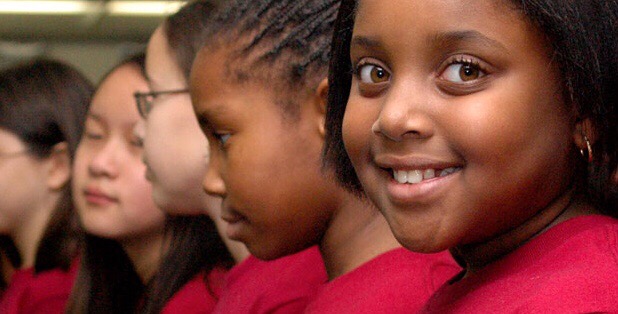
ATLANTA, April 12, 2017 /PRNewswire-USNewswire/ — America’s youth lack the education and resources needed to realize their entrepreneurial aspirations, according to a new Gallup/Operation HOPE report announced today during the 2017 HOPE Global Forums Annual Meeting. Since 2011, the Gallup-HOPE Index has served as an annual benchmark of the economic vitality of the nation’s youth, measuring students’ (in grades five through 12) attitudes about entrepreneurship and financial literacy.
Below is an overview of the 2016 Gallup-HOPE Index findings:
Students lack the educational opportunities necessary to reinforce and unleash their entrepreneurial aspirations. Nationally, about four in 10 students (41%) agree they plan to start their own business, but the percentage of schools offering classes in how to start and run a business has decreased since 2011 — from 50% to 43%.
The gap between the percentages of younger (grades five through eight) and older students (grades nine through 12) who agree that they plan to start their own business also has widened since 2011. In 2016, younger students (55%) are almost twice as likely as older students (27%) to say they plan to start their own business. In 2011, those percentages were 55% and 34%, respectively.
U.S. schools are more likely to offer classes in how to start and run a business to older students, signifying a missed opportunity to foster economic energy among younger students. Sixty percent of older students say their school offers these types of classes, compared with just 27% of younger students.
Nonwhite students and those from lower socioeconomic backgrounds need greater support to realize their entrepreneurial aspirations. Half of students from lower socioeconomic backgrounds agree that they plan to start their own business, compared with 35% of students from high socioeconomic backgrounds. However, students from lower socioeconomic backgrounds will potentially face more obstacles — such as a lack of social or financial capital or other resources — than their peers from high socioeconomic backgrounds.
Nonwhite students are less likely than in previous years to say they plan to start their own business (54% in 2011 vs. 42% in 2016). In prior years, nonwhite students were more likely than white students to say they plan to start their own business, but this gap has nearly disappeared (15-percentage-point gap in 2011 vs. two-point gap in 2016).
The percentage of white students who say they plan to start their own business has remained relatively steady since 2011.
“Our index shows students remain optimistic but lack the financial literacy to compete globally with other students. This is bad news for America,” said John Hope Bryant, founder, chairman and CEO of Operation HOPE. “We need to prioritize the economic engagement of today’s youth and promote financial literacy, financial dignity and entrepreneurship in underserved communities.”

In the newly released report, Gallup Chairman and CEO Jim Clifton writes, “There are some promising signs, however. About 40% of students want to start a business or invent something that will change the world. The problem is, only 5% of these students are in internships in companies or organizations. This is arguably the single biggest failure of our leadership. Not Washington’s, not the public schools’ — but yours and mine.”
The 2016 Gallup-HOPE Index findings are based on results from a nationally representative telephone survey of 1,006 U.S. students in grades five through 12. Telephone interviews were conducted between Sept. 12, 2016, and Nov. 7, 2016. The sampling frame of this study came from the Gallup Daily tracking survey. The frame was stratified by race/ethnicity, education and household income, and proportionate selection was used.
You can find the full report here. Follow the HOPE Global Forum 2017 Annual Meeting with HashTag #HGF17.
Operation HOPE and Gallup
